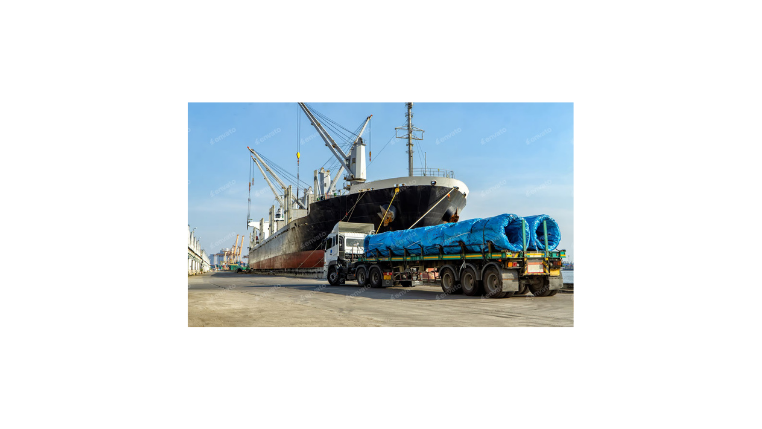In today's fast-paced and competitive business landscape, supply chain management plays a crucial role in the success of any company. The ability to efficiently and effectively manage the flow of goods and services from suppliers to customers is essential for meeting customer demands, reducing costs, and increasing overall profitability. This is where data-driven freight management comes into play. By harnessing the power of data, companies can gain valuable insights into their supply chain operations and transform their logistics from a reactive process into a proactive, strategic advantage.
This guide will walk you through the core benefits of a data-driven approach, demonstrating how analytics, automation, and real-time insights can improve every aspect of your freight management.
1. Improved Supply Chain Management
With data at your fingertips, you can track key performance indicators (KPIs), analyze historical trends, and use predictive analysis to optimize your entire supply chain. This leads to better decision-making, more efficient resource allocation, and a greater ability to respond to market changes.
- Proactive Decision-Making: By analyzing historical data on on-time delivery rates, transit times, and inventory levels, you can identify patterns and anticipate future demand. This allows you to optimize inventory, streamline processes, and avoid potential disruptions.
- Predictive Analysis: Advanced analytics can help you identify potential bottlenecks in the supply chain before they happen. This enables you to proactively address issues and ensure smoother, more reliable operations.
- Locating Carriers: With a centralized database, you can more easily locate and manage carriers, ensuring you have the right resources available at the right time.
2. Enhanced Vendor Relations
In the world of freight management, building and maintaining strong relationships with vendors is essential. Data provides a reliable, objective record of past shipments and performance, which is crucial for building trust and loyalty.
- Performance Measurement: Data-driven freight management allows you to measure and evaluate the performance of each vendor based on quantifiable metrics such as on-time delivery rates, order accuracy, and customer satisfaction scores.
- Fostering Trust: By analyzing this data, you can identify vendors who consistently meet or exceed expectations. This not only fosters trust but also enables you to optimize shipping schedules, resulting in fewer delays and improved overall performance.
- Productive Conversations: With data as evidence, you can have productive, fact-based conversations with vendors to address any issues or concerns and work together to improve efficiency and customer satisfaction.
3. Efficient Audit Trails and Financial Accuracy
In the complex world of freight management, accurate billing and financial transparency are paramount. Data-driven management allows finance teams to maintain efficient audit trails, ensuring that all conversations and negotiations are accurately recorded.
- Identifying Inconsistencies: By having a reliable record of all interactions, companies can easily identify any inconsistencies in invoices, reducing the risk of overpayment or underpayment.
- Streamlined Billing: This not only streamlines the billing process but also minimizes the need for continuous auditing, saving valuable time and resources.
- Financial Transparency: With data as a solid foundation, companies can confidently address any discrepancies and ensure accurate and transparent financial transactions.
4. Performance Measurement and Cost Reduction
Vendor performance can make or break the efficiency of your supply chain. Data-driven freight management allows companies to measure and evaluate the performance of vendors based on objective metrics.
- Measuring Vendor Performance: By analyzing data on docking schedules and dead time, companies can identify vendors who consistently underperform.
- Informed Decisions: Armed with this information, companies can make informed decisions about vendor management, whether it's renegotiating contracts, seeking alternative vendors, or providing additional support and resources to improve performance.
- Identifying Inefficiencies: Data analytics can reveal areas where companies are losing money in their freight operations. By understanding the sources of these inefficiencies, companies can take proactive measures to reduce costs, optimize routes, diversify carriers, and improve freight payment accuracy.
5. Increased Responsiveness and Productivity
By actively documenting all shipper operations, data can be used to identify and address potential problems with carriers promptly. Automation and big data analytics can further enhance responsiveness, enabling companies to respond quickly to issues and capitalize on opportunities.
- Proactive Problem-Solving: Instead of reacting to problems after they occur, data allows you to identify and address potential issues with carriers before they cause significant disruptions.
- Automated Processes: Automation can streamline various tasks, such as invoice processing and payment verification, freeing up employees to focus on more strategic, high-value work.
- Capitalizing on Opportunities: By having real-time data at your fingertips, you can quickly identify and take advantage of new opportunities, such as a more efficient route or a better rate from a new carrier.
The Future of Logistics: From Reactive to Proactive
Data-driven freight management is not a trend; it's a fundamental shift in how logistics operates. The future of the supply chain is one where businesses move beyond simply reacting to problems as they arise. Instead, they use the power of data to predict, prevent, and optimize. This proactive approach leads to a more resilient, cost-effective, and customer-centric supply chain that is ready to meet the challenges of tomorrow's dynamic market.
Conclusion: Building a Resilient, Data-Driven Supply Chain
In conclusion, data-driven freight management is no longer an option but a necessity. By embracing the power of data analytics and automation, companies can build an agile, resilient, and highly productive supply chain. This strategic approach provides a clear path to reducing costs, enhancing vendor relationships, and increasing responsiveness. By moving from manual, reactive processes to automated, proactive strategies, businesses can gain a lasting competitive advantage and ensure long-term success in the ever-evolving world of logistics.










